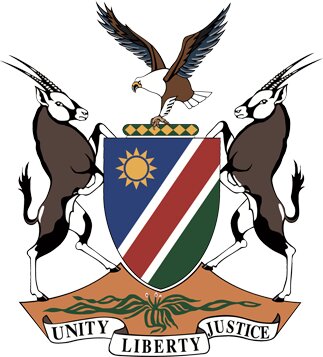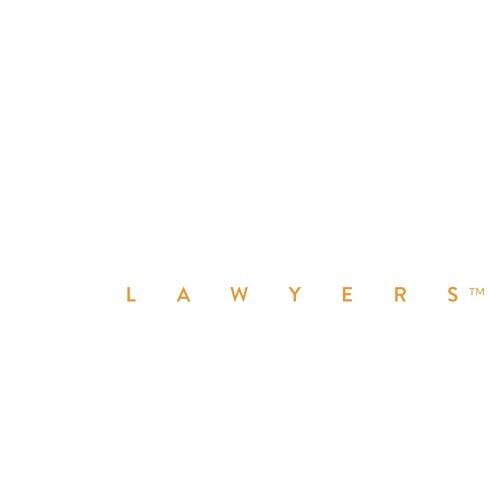Best Education Law Lawyers in Namibia
Share your needs with us, get contacted by law firms.
Free. Takes 2 min.
Or refine your search by selecting a city:
List of the best lawyers in Namibia
About Education Law in Namibia
Education Law in Namibia governs the policies, regulations, and legal matters concerning educational institutions, teachers, and students within the country. It encompasses all aspects of the educational system, including access to education, the rights and responsibilities of students and teachers, school governance, and the development and implementation of educational policies. The primary aim of these laws is to ensure that the educational environment is equitable, inclusive, and in alignment with both local and international standards. The Ministry of Education, Arts, and Culture is the main body responsible for overseeing the education sector in Namibia.
Why You May Need a Lawyer
There are several scenarios where individuals or institutions might require legal assistance in Education Law. These include but are not limited to:
- Discrimination and Inclusion: Handling cases where students or staff might face discrimination due to race, gender, disability, or any other grounds.
- Disciplinary Actions: Navigating issues related to student or teacher disciplinary actions, ensuring they are conducted fairly and according to the law.
- School Governance: Assisting in legal matters concerning school management and governance, including disputes within school boards.
- Special Education Needs: Addressing issues related to the provision of resources and support for students with special educational needs.
- Private and Public School Regulations: Navigating complexities involved with the establishment, management, and regulation of private versus public schools.
Local Laws Overview
Namibia's legal framework for education is primarily structured under several acts and regulations aiming to ensure quality and inclusive education. Key laws include:
- The Education Act (Act 16 of 2001): This Act provides for the development of education policies, the establishment and management of schools, and outlines the rights and responsibilities of students and teachers.
- The Namibian Constitution: Ensures the right to education for all citizens and mandates non-discrimination in educational settings.
- The Namibian National Curriculum for Basic Education: Sets educational standards and benchmarks for various educational levels.
- Disability Policy for Education: Ensures that the educational needs of learners with disabilities are met.
Frequently Asked Questions
What is the right age for starting school in Namibia?
Children in Namibia generally start their primary education at the age of seven.
Are students' rights protected under Namibian law?
Yes, students' rights are protected by the Namibian Constitution and other educational laws which ensure access to education without discrimination.
Can a foreign national study at public schools in Namibia?
Yes, foreign nationals can enroll in public schools in Namibia, provided they comply with the immigration and school enrollment requirements.
How are disciplinary matters handled in schools?
Disciplinary matters must adhere to the guidelines set out in the Education Act, ensuring fairness and transparency in the process.
What should I do if my child faces discrimination at school?
It is advisable to address discrimination concerns with the school's administration first. If unresolved, seeking legal advice or escalating the issue to the Ministry of Education may be necessary.
Are there provisions for homeschooling in Namibia?
Yes, homeschooling is allowed under Namibian law, but it requires adherence to specific regulations and approval from the Ministry of Education.
What legal recourse do teachers have if they face unfair dismissal?
Teachers facing unfair dismissal can seek legal assistance to challenge the decision, ensuring their employment rights are upheld as per the Labour Act and education regulations.
How are private schools regulated in Namibia?
Private schools are regulated under the Education Act and must meet specific standards set by the Ministry of Education to maintain accreditation.
Is there financial aid available for students in Namibia?
Various scholarships and bursaries are available, particularly for students pursuing tertiary education, often requiring applications through the Namibia Student Financial Assistance Fund (NSFAF).
What are the procedures for settling disputes between parents and schools?
Disputes are usually resolved through dialogue with the school administration. For unresolved issues, mediation or legal action may be necessary.
Additional Resources
- Ministry of Education, Arts, and Culture: The primary governmental body responsible for education in Namibia.
- Legal Assistance Centre (LAC): Provides legal aid services, including those related to education law.
- Namibia Human Rights Commission: Monitors and advocates for human rights in educational contexts.
- Parents Educators and Teachers Association of Namibia (PETAN): Supports collaboration among students, parents, and educators.
Next Steps
If you require legal assistance in matters related to Education Law in Namibia, consider the following steps:
- Identify and define your specific legal issue, ensuring you have all relevant details and documents.
- Consult with an Education Law specialist or legal expert to discuss your situation and explore your options.
- Consider utilizing resources offered by organizations like the Legal Assistance Centre for guidance and support.
- If necessary, engage a lawyer experienced in Education Law to represent you or provide further consultation.
- Maintain clear communication with all parties involved and follow up on any legal proceedings or advocacy efforts.
Lawzana helps you find the best lawyers and law firms in Namibia through a curated and pre-screened list of qualified legal professionals. Our platform offers rankings and detailed profiles of attorneys and law firms, allowing you to compare based on practice areas, including Education Law, experience, and client feedback.
Each profile includes a description of the firm's areas of practice, client reviews, team members and partners, year of establishment, spoken languages, office locations, contact information, social media presence, and any published articles or resources. Most firms on our platform speak English and are experienced in both local and international legal matters.
Get a quote from top-rated law firms in Namibia — quickly, securely, and without unnecessary hassle.
Disclaimer:
The information provided on this page is for general informational purposes only and does not constitute legal advice. While we strive to ensure the accuracy and relevance of the content, legal information may change over time, and interpretations of the law can vary. You should always consult with a qualified legal professional for advice specific to your situation.
We disclaim all liability for actions taken or not taken based on the content of this page. If you believe any information is incorrect or outdated, please contact us, and we will review and update it where appropriate.
Browse education law law firms by city in Namibia
Refine your search by selecting a city.















